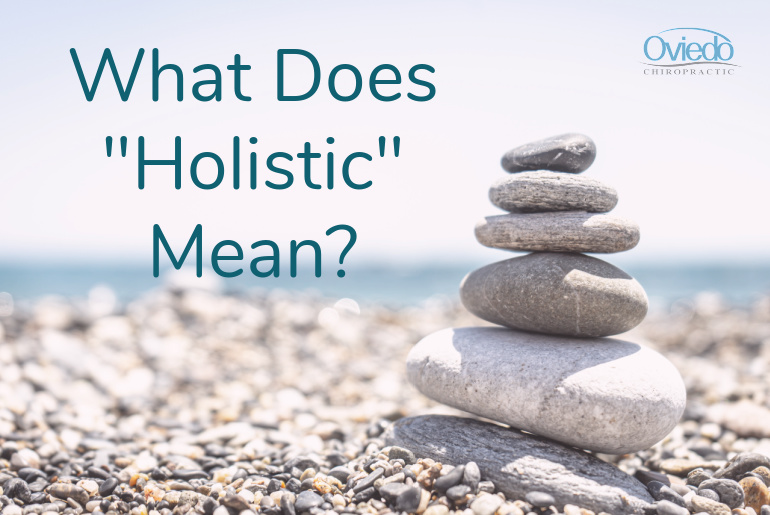Introduction:
In the fast-paced and stressful world we live in today, maintaining good health has become more crucial than ever. The concept of holistic health, which considers the interconnectedness of the mind, body, and spirit, has gained significant traction. As individuals increasingly seek comprehensive well-being, the importance of holistic health coverage has emerged as a key priority. This article explores the significance of holistic health coverage, its components, benefits, and how it can contribute to a healthier and more fulfilling life.
I. Understanding Holistic Health:
Holistic health focuses on the idea that optimal well-being requires attention to all aspects of a person’s life. This includes physical health, mental and emotional well-being, social connections, and spiritual fulfillment. Unlike traditional healthcare that often treats symptoms in isolation, holistic health seeks to address the root causes of health issues by considering the whole person.

II. Components of Holistic Health Coverage:
- Physical Health: Holistic health coverage should encompass preventive measures, routine check-ups, and treatments for physical ailments. This includes access to a wide range of medical professionals, from primary care physicians to specialists, promoting early detection and intervention.
- Mental and Emotional Well-being: Mental health is a crucial component of holistic wellness. Comprehensive coverage should include mental health services such as counseling, therapy, and psychiatric care. Addressing stress, anxiety, and other mental health issues is essential for overall well-being.
- Alternative and Complementary Therapies: Holistic health embraces alternative and complementary therapies like acupuncture, chiropractic care, yoga, and meditation. A robust coverage plan should provide options for these therapies, recognizing their role in promoting balance and harmony.
- Nutritional Support: A holistic approach to health emphasizes the importance of nutrition. Coverage should extend to nutritional counseling, dietary guidance, and access to wellness programs that promote healthy eating habits.
- Social and Spiritual Support: Holistic health is incomplete without acknowledging the impact of social connections and spiritual well-being. Coverage should include support groups, community engagement programs, and resources that foster a sense of belonging and purpose.
III. Benefits of Holistic Health Coverage:
- Preventive Focus: Holistic health coverage encourages preventive care, reducing the likelihood of developing chronic illnesses. Regular check-ups, screenings, and lifestyle interventions contribute to overall health and well-being.
- Enhanced Quality of Life: By addressing various aspects of an individual’s life, holistic health coverage aims to enhance overall quality of life. This includes improved mental health, increased energy levels, and better management of stress.
- Cost Savings in the Long Run: Investing in holistic health coverage can lead to long-term cost savings. Preventing the development of chronic conditions through early intervention and lifestyle management can significantly reduce healthcare expenses.
- Increased Productivity: Employees with access to holistic health coverage often experience increased productivity. Physical and mental well-being are closely linked to job performance, and a healthier workforce is generally more engaged and efficient.
- Empowerment and Personal Responsibility: Holistic health coverage empowers individuals to take charge of their health. By providing resources and support for lifestyle changes, individuals are encouraged to make informed choices that contribute to their well-being.
IV. Implementing Holistic Health Coverage:
- Workplace Wellness Programs: Employers can play a pivotal role in promoting holistic health by implementing workplace wellness programs. These may include fitness initiatives, mental health resources, and educational sessions on holistic living.
- Insurance Providers and Policy Options: Insurance providers can adapt their policies to include a broader spectrum of holistic health services. Collaborating with healthcare professionals in various fields ensures that policyholders have access to a comprehensive range of care options.
- Government Initiatives: Governments can contribute by promoting holistic health initiatives, offering incentives to employers who provide comprehensive wellness programs, and integrating holistic approaches into public healthcare systems.
V. Conclusion:
Holistic health coverage is a progressive and forward-thinking approach to healthcare that aligns with the evolving needs of individuals seeking a well-rounded and fulfilling life. By recognizing the interconnectedness of physical, mental, and spiritual well-being, holistic health coverage becomes a powerful tool in promoting a healthier and happier society. As we move forward, it is essential for individuals, employers, insurance providers, and governments to collaborate in making holistic health coverage a priority, ensuring that everyone has the opportunity to thrive in every aspect of their lives.
